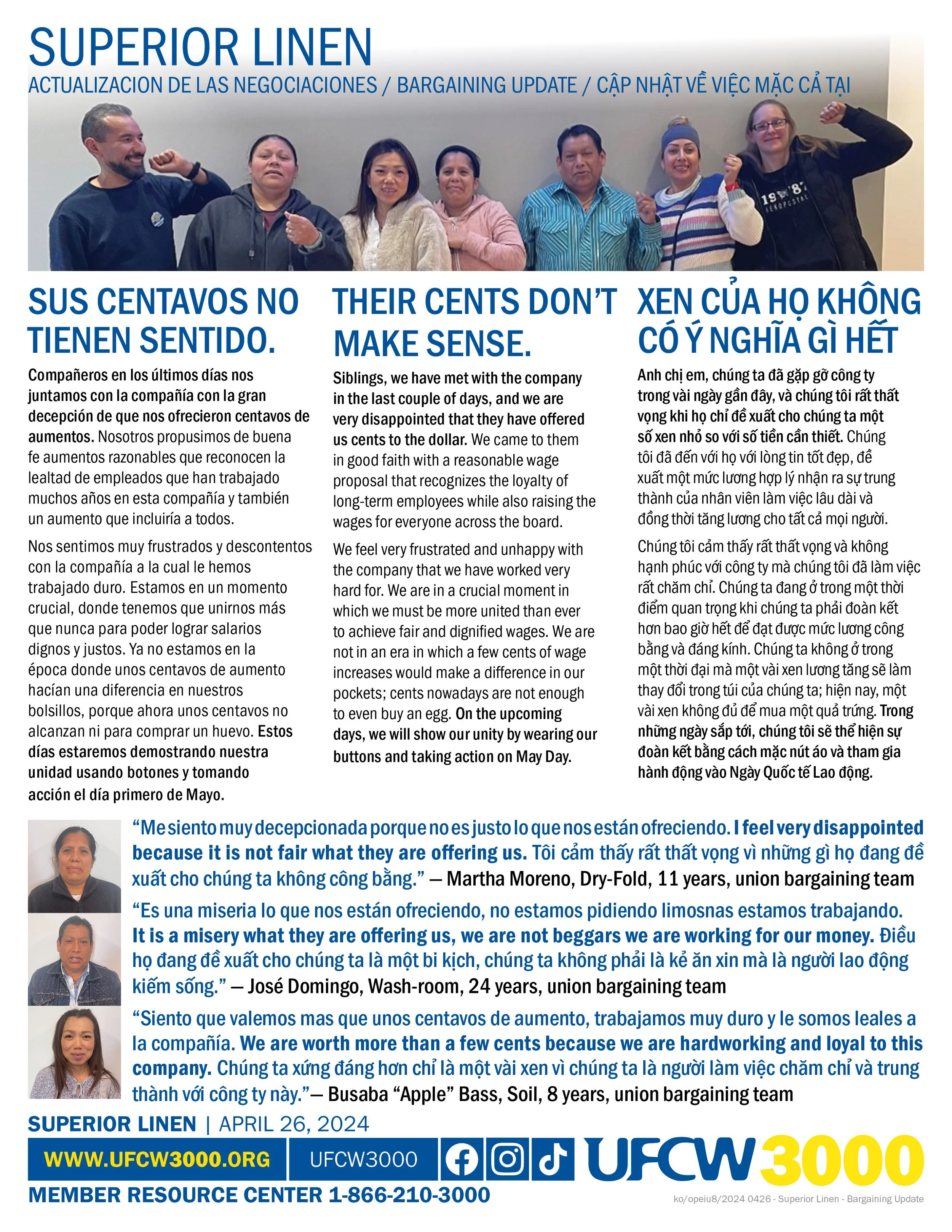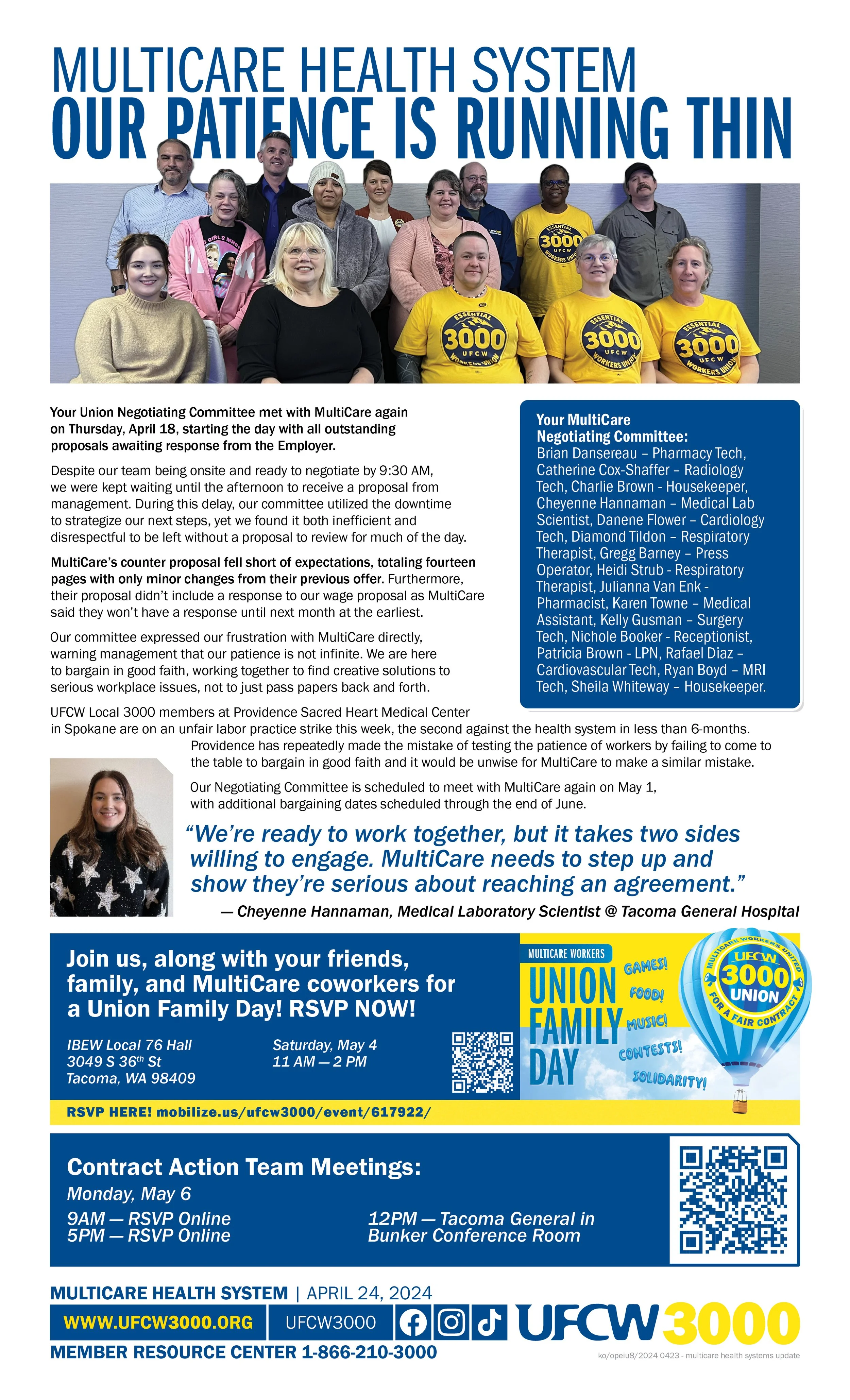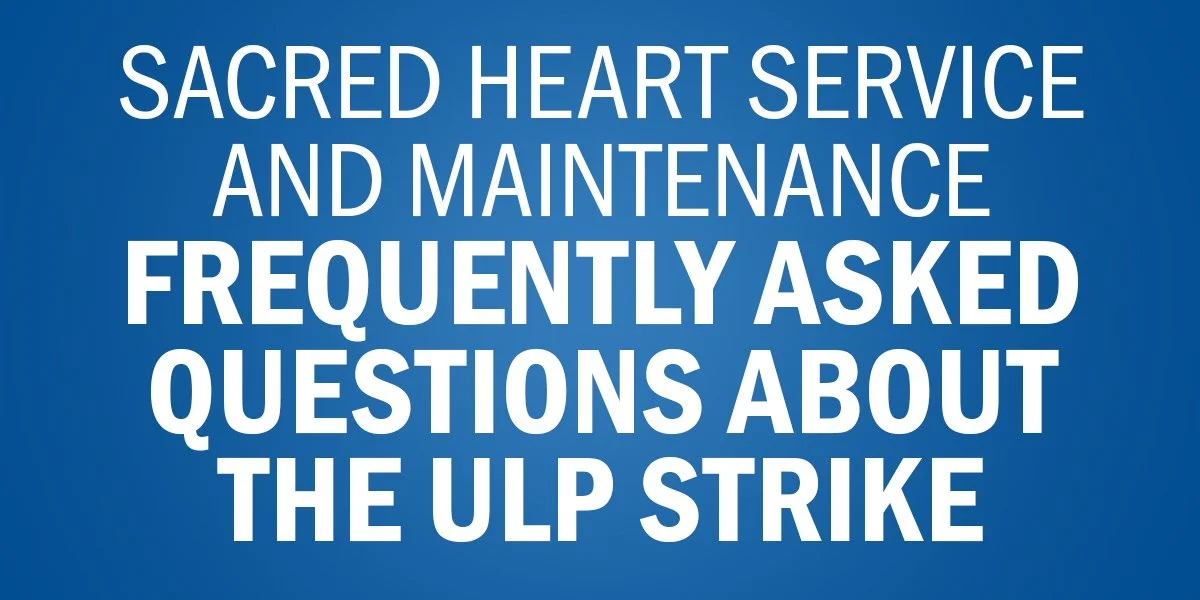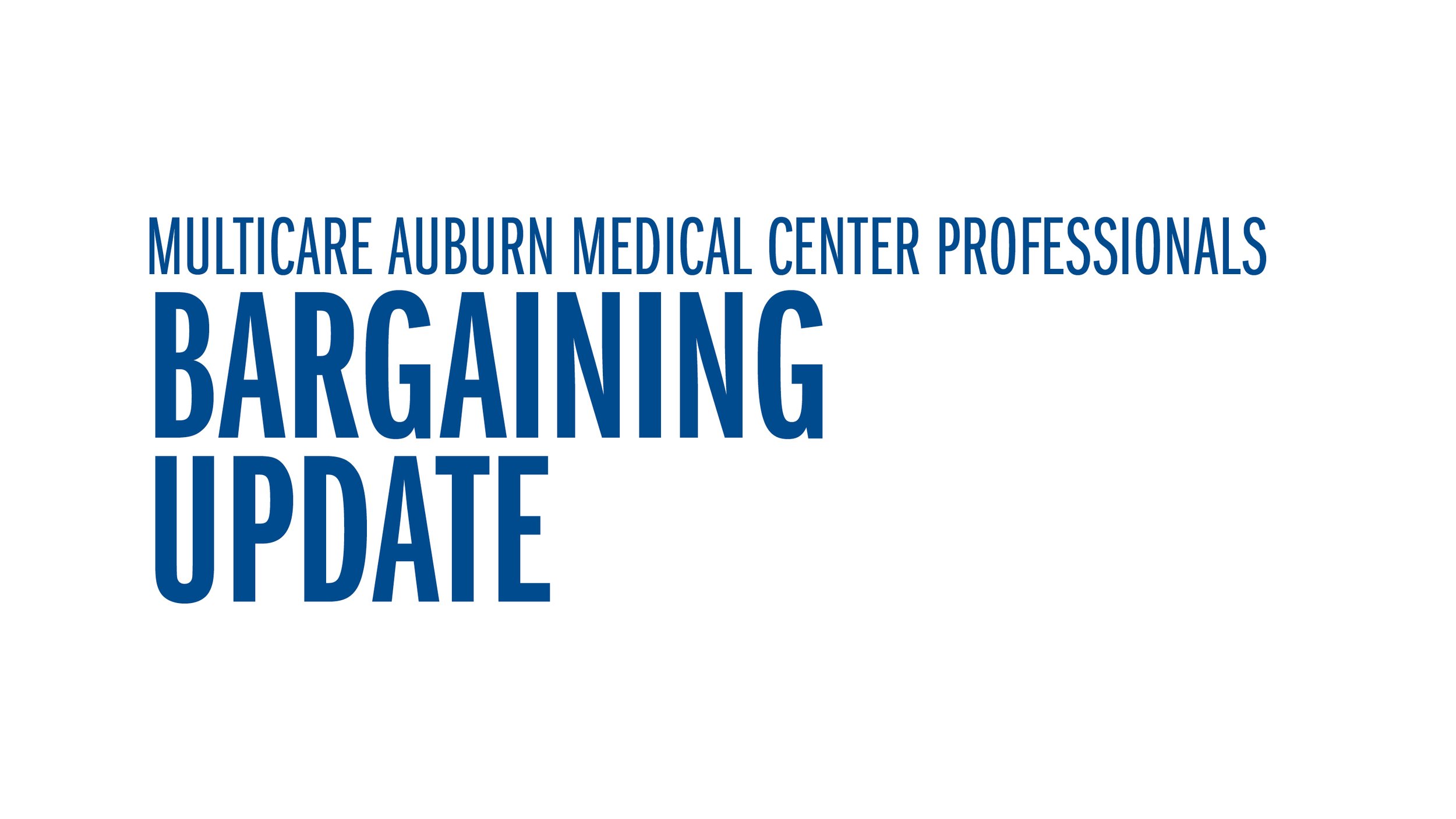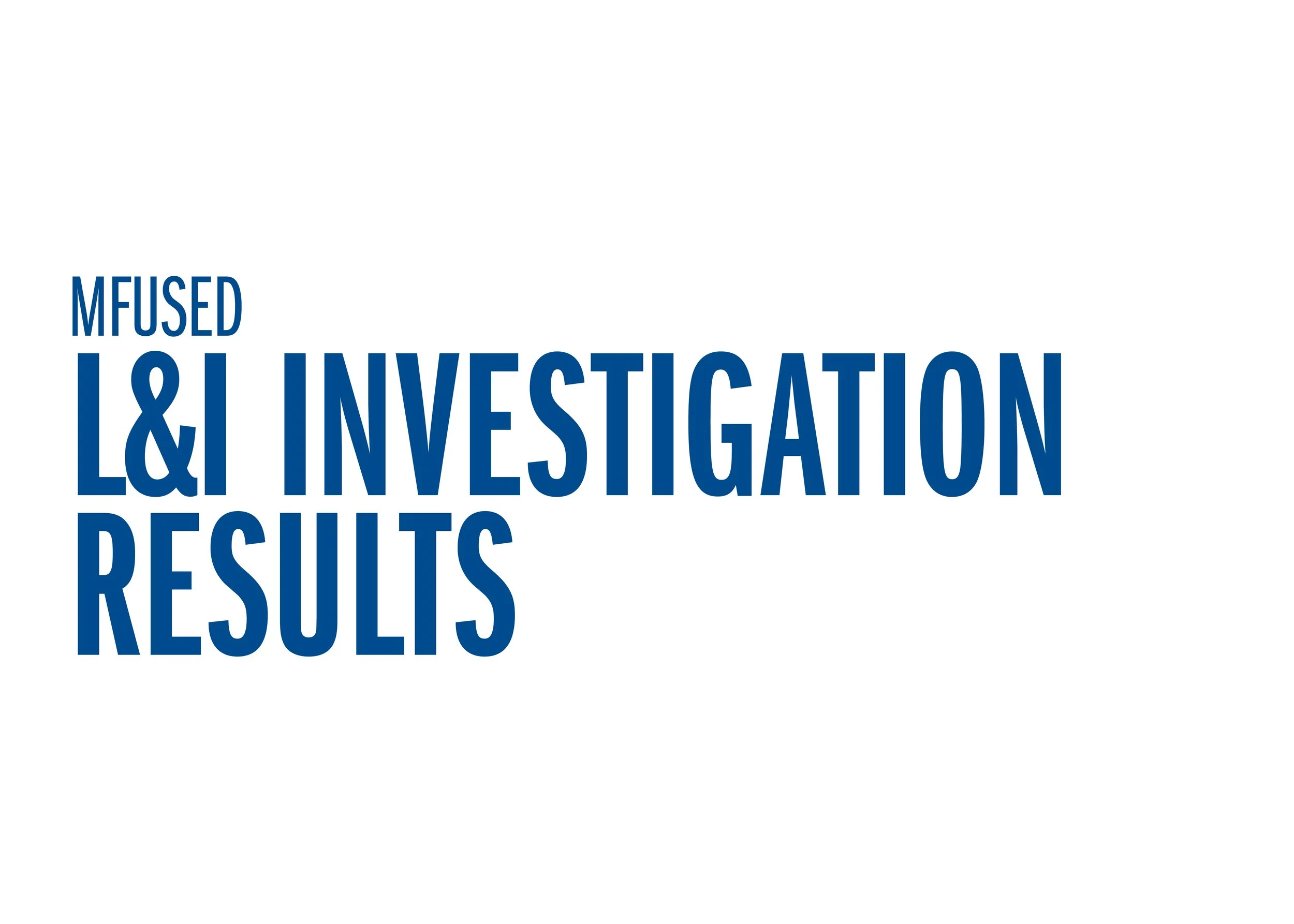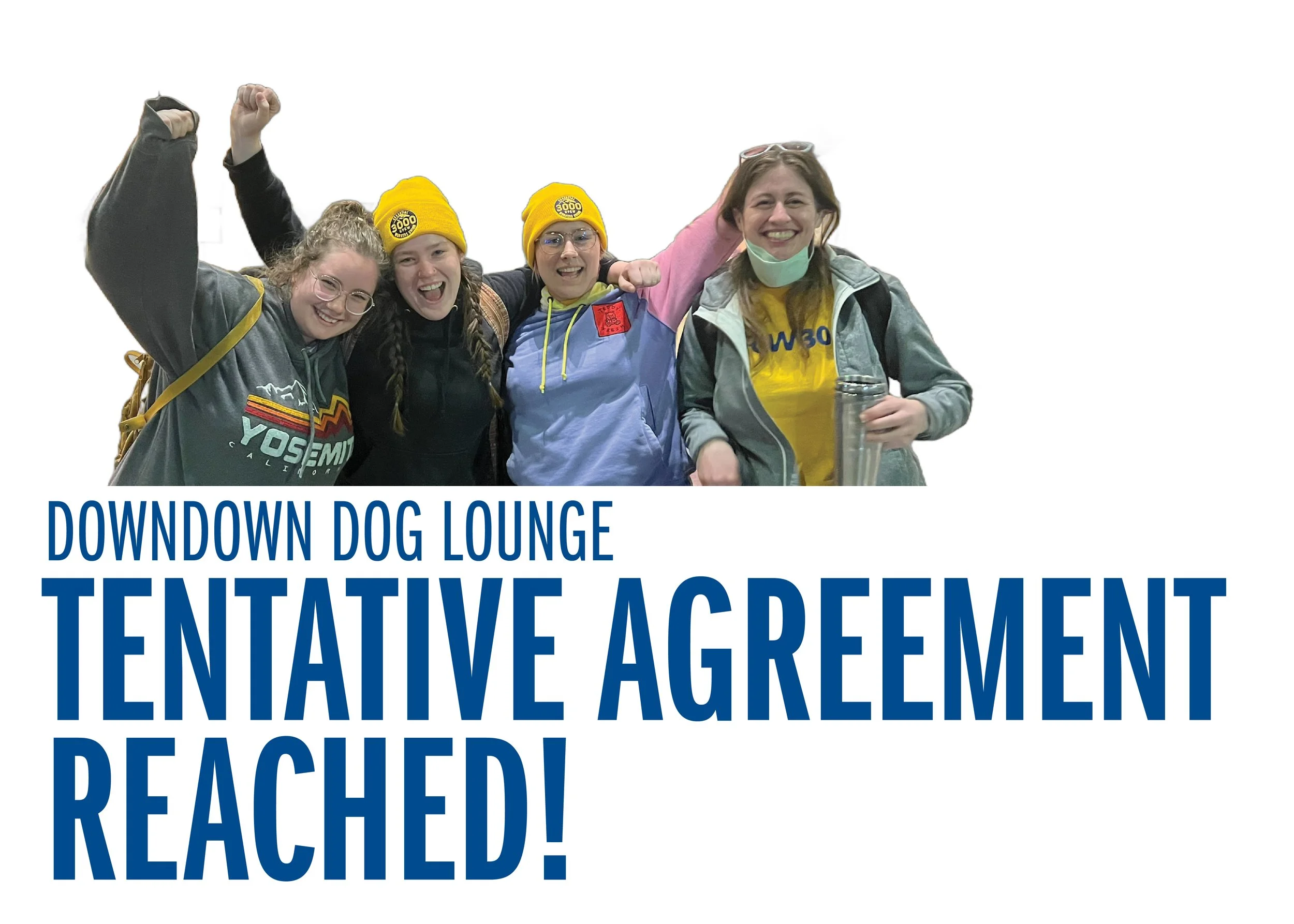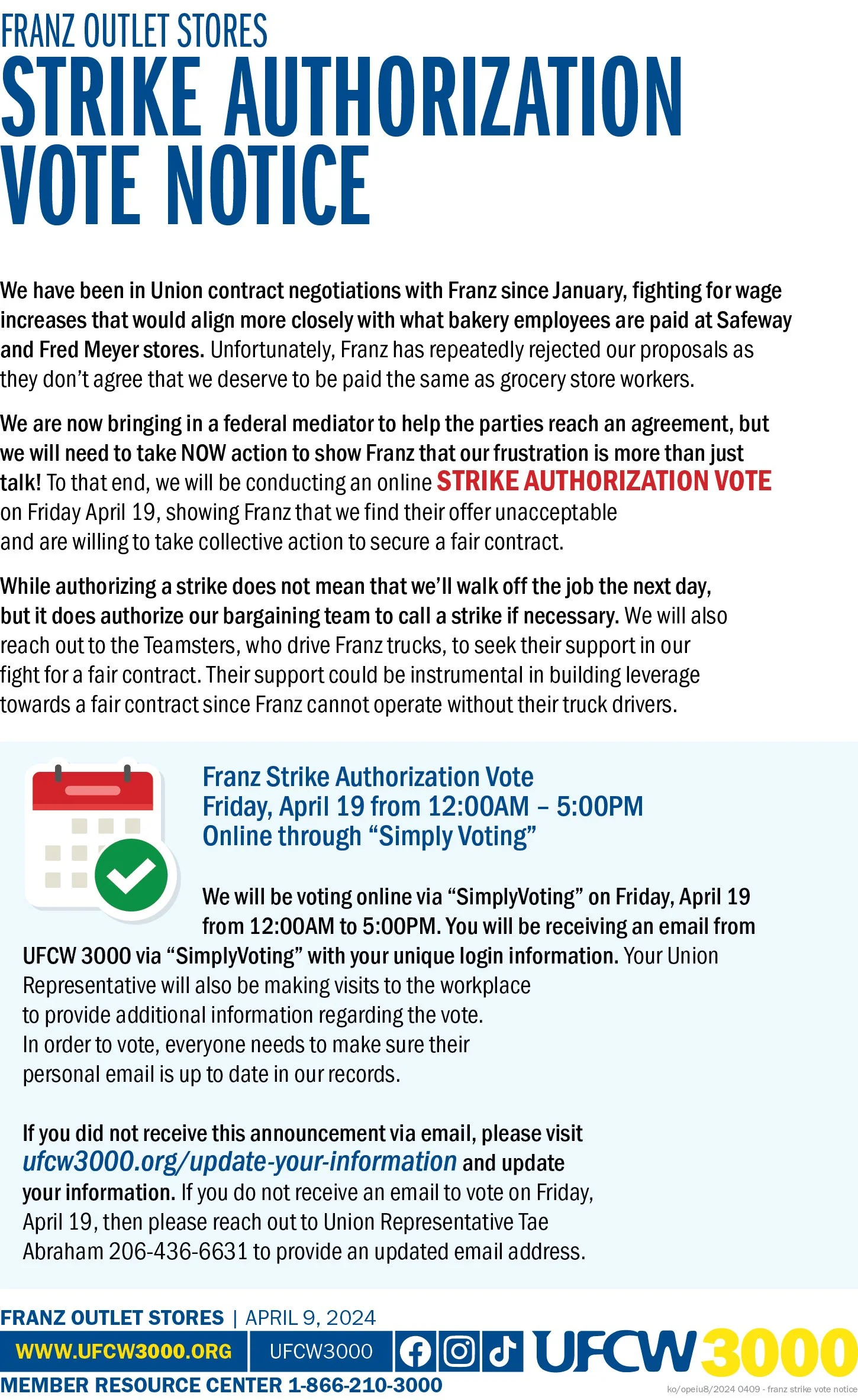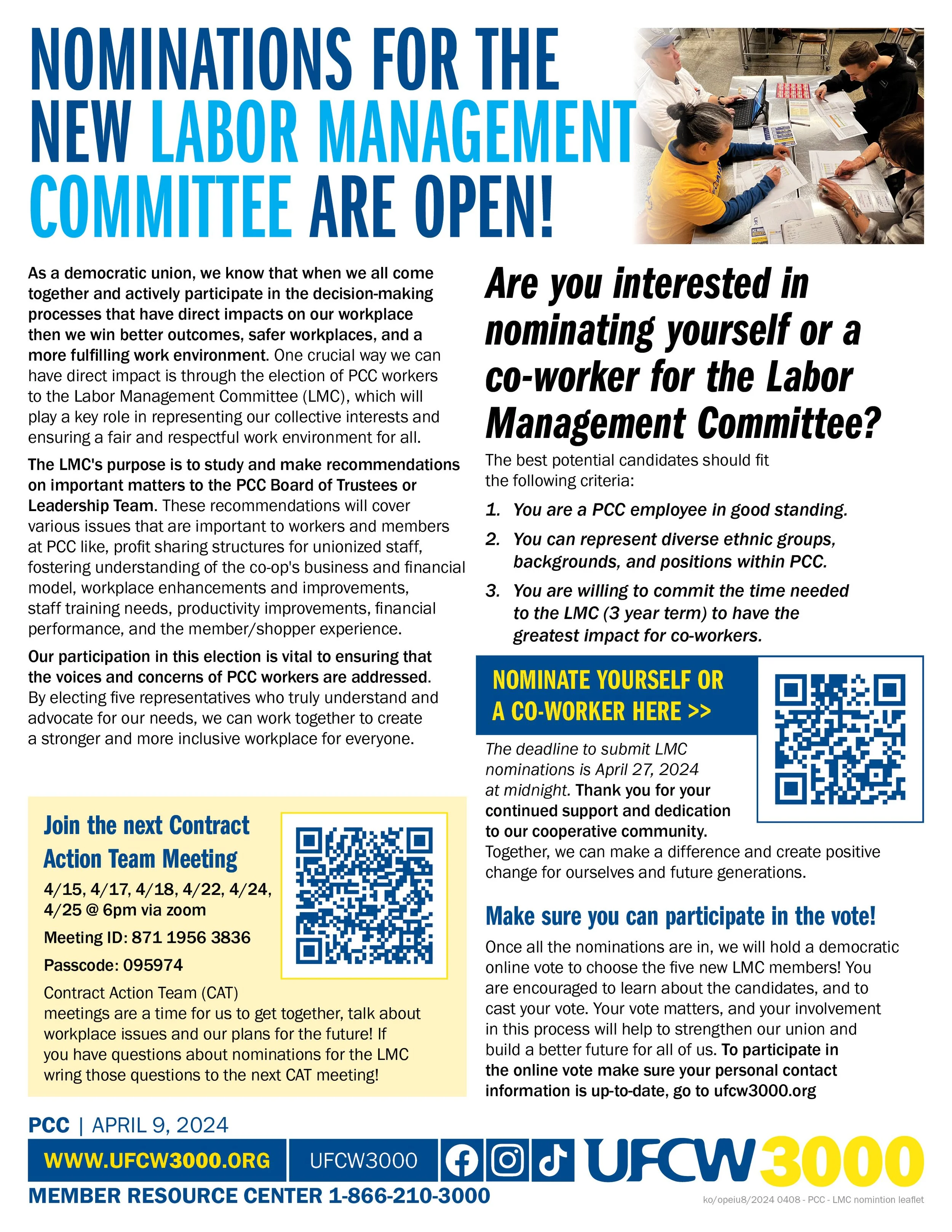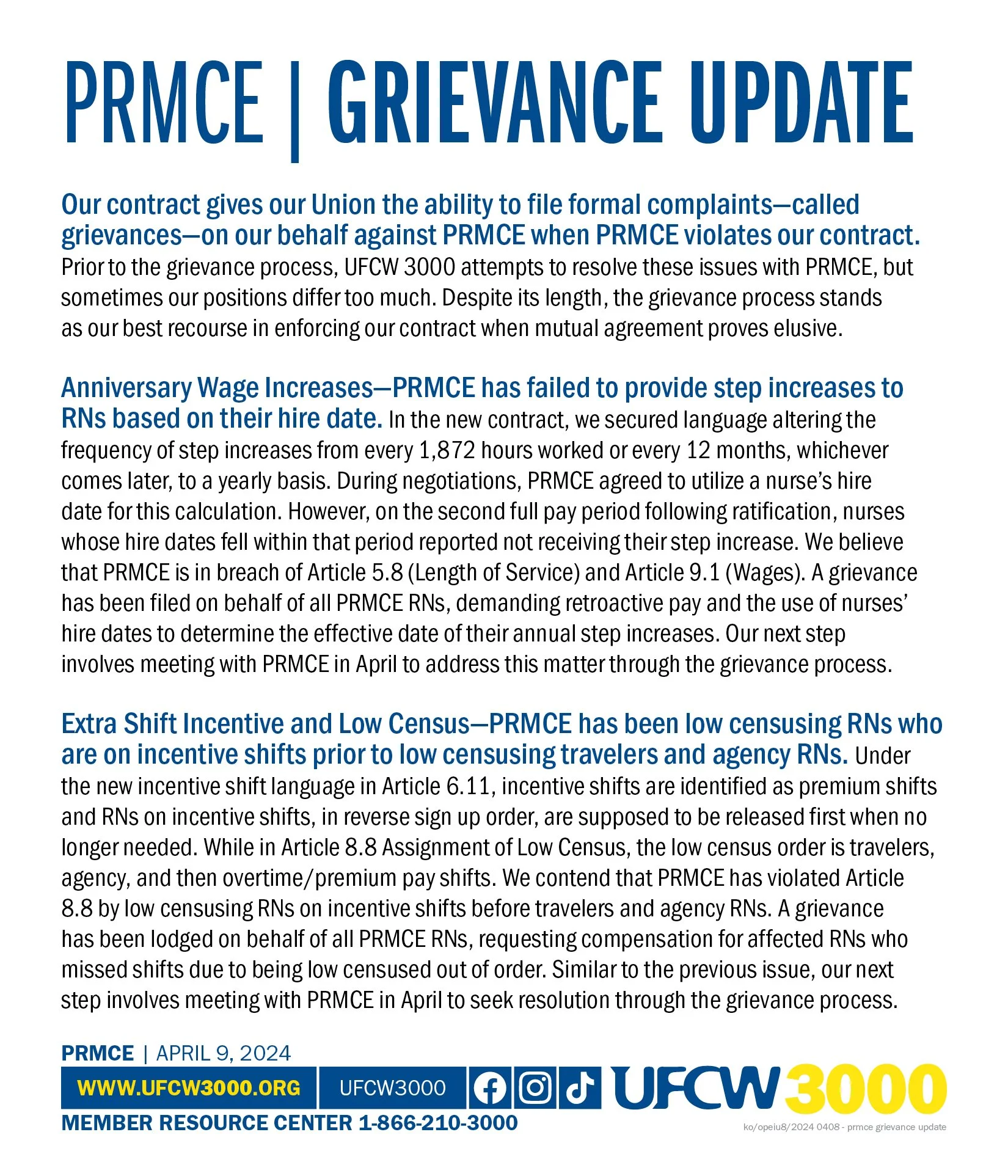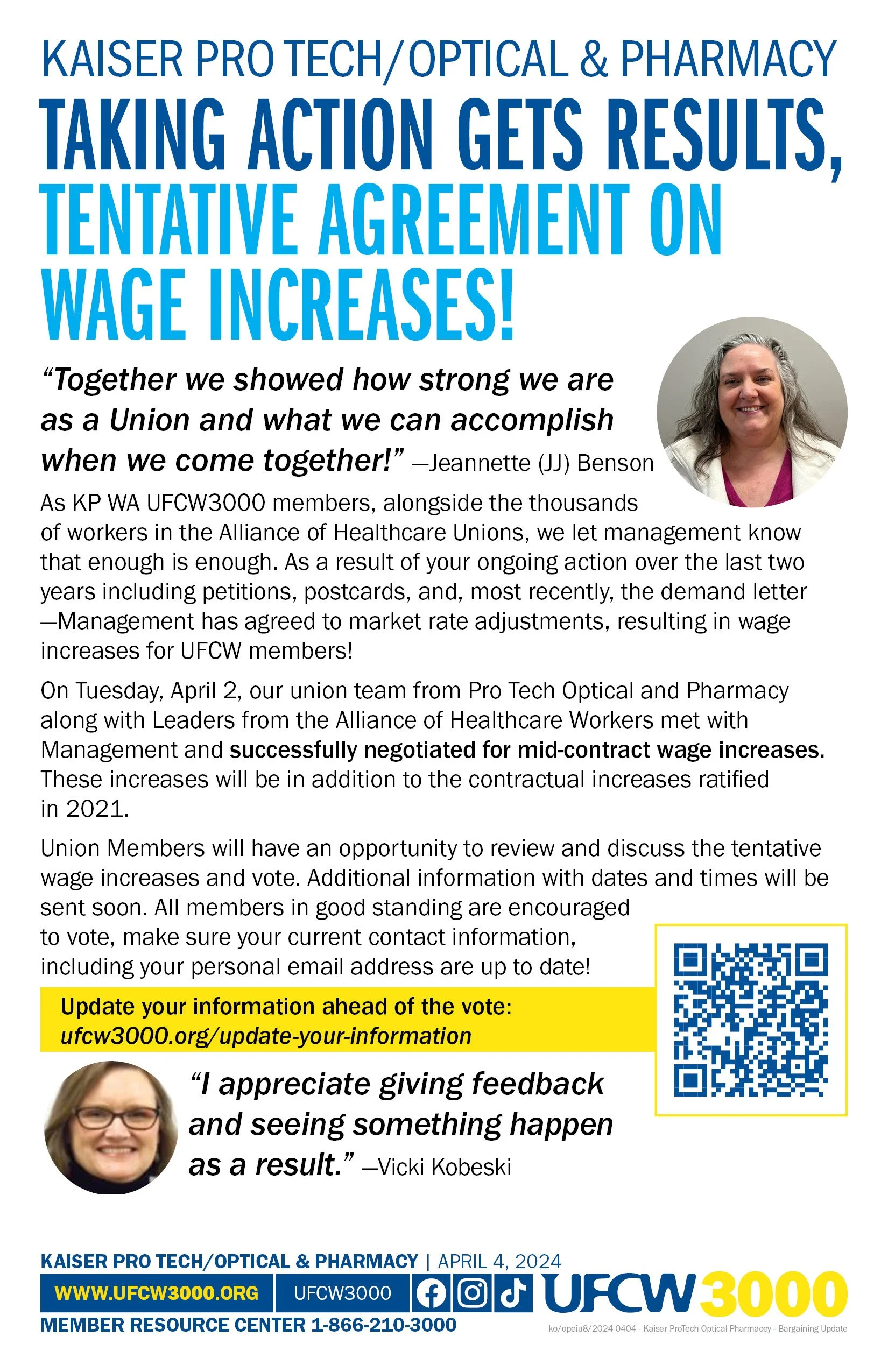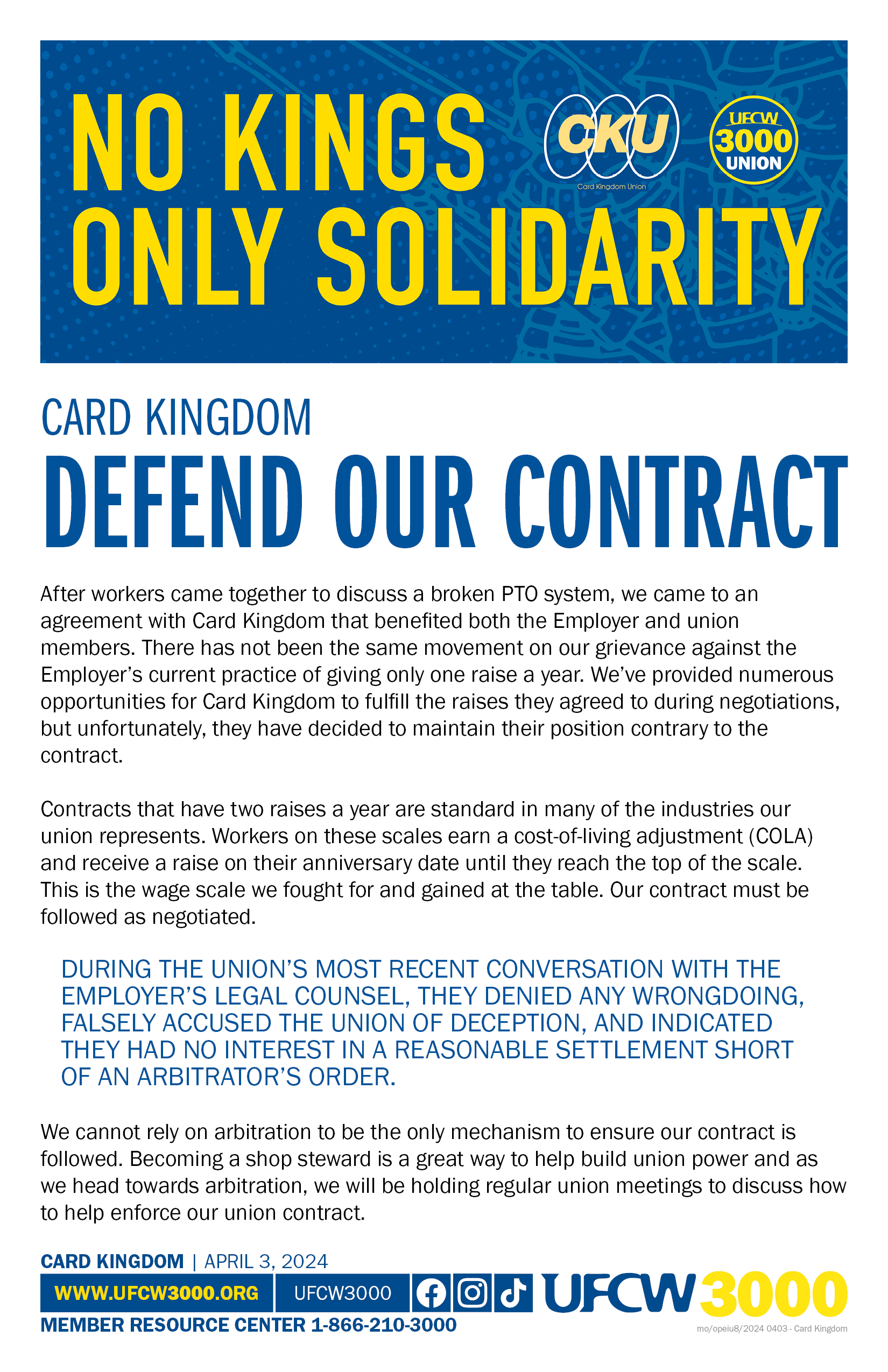FOR IMMEDIATE RELEASE: March 6, 2020
CONTACT:
Abraham White, 202-341-1899, awhite@ufcw.org
Tom Geiger, 206-604-3421, tgeiger@ufcw21.org
Unions Representing Health Care Professionals Call on CDC to Reconsider Protections During Coronavirus Outbreak
WASHINGTON, D.C. – Today, the United Food and Commercial Workers International Union joined the Service Employees International Union and the American Federation of Teachers in calling on the Centers for Disease Control to strengthen protections for first responders fighting the coronavirus outbreak. These unions represent thousands of these health care workers in Washington who are on the front lines of COVID-19 response.
“Health care workers represented by UFCW are bravely stepping up to help so many communities confronting the coronavirus,” said UFCW International President Marc Perrone. “Keeping our patients and families safe starts with strong leadership. UFCW’s 1.3 million members and workers across the country are calling on the CDC and both parties – Republicans and Democrats – to work together to take the bold steps needed to strengthen the government’s response to this crisis, before it’s too late.”
“Our members are displaying extraordinary courage and dedication at the front lines of this outbreak in Washington State, and both the safety of our community and the integrity of our health care system depends on their ability to do their work safely,” said UFCW Local 21 President Faye Guenther in Seattle. “By caring for patients with COVID-19 health care workers are putting themselves at higher risk, and they deserve the highest level of protection.”
“The Trump administration has left healthcare workers in the dark by spreading misinformation, delaying the release of guidelines and best practices developed by public health experts, and is putting the health of the stock market above the health of people,” said Service Employees International Union President Mary Kay Henry. “Nurses, lab techs, environmental service workers, dietary aides, caregivers and doctors in our hospitals, nursing homes and communities are in direct contact with patients, meaning these workers are at high risk of contracting or spreading illnesses. In the face of a health emergency, it is more important than ever to ensure these workers are prepared with the right equipment and ready to take action—not left wondering how to keep themselves, their patients and their families healthy.
“Furthermore, everyone on the frontlines of care—from hospital workers to home care workers—must have affordable healthcare and paid sick time they can count on. No one should have to go to work sick because they are worried about being penalized or missing a day’s pay; and no one should have to postpone or forgo treatment because they can’t afford the bill,” SEIU’s Henry added. “The Trump administration, the CDC and OSHA must put worker and patient safety—not cost reduction —first. As the largest union of healthcare workers, SEIU will continue to push the Trump administration to improve its response. This situation shows the power that working people have when we join together in unions, and it is a good example of why every worker should have the opportunity to join a union—no matter where they work.”
“Nurses, doctors, respiratory therapists and the other workers supporting patient care are at ground zero of this public health crisis, and their voices must be a key part of developing a national plan. Failing to provide adequate protection to healthcare workers increases the risk that those workers themselves will spread the infection and failing to protect them weakens our response,” said AFT President Randi Weingarten. “Unfortunately, both the CDC and OSHA have done little thus far to engage with workers, and to make sure they’re clear on the protocols for respiratory protection and exposure to infectious disease. That, coupled with these rollbacks, is a troubling sign of our government’s ability to manage this threat this our communities.”
“As frontline caregivers, we are the experts in keeping our patients safe. Not providing adequate protections for healthcare workers not only puts caregivers at risk but puts patients at risk as well,” said SEIU 1199 Executive Vice President Jane Hopkins, RN. “We are calling on the CDC to make the safety of healthcare workers, and thus our patients, the first priority.”
“Nurses, doctors, and other healthcare workers stand ready to respond to this crisis, but they should not have to sacrifice their own health, or risk infecting their loved ones. The CDC has not heard from these frontline workers who will carry out the work, who need assurance from the federal government that they’ll be protected. We are calling on the CDC to rationally target the supply of respirators and use other controls to reduce the risk of infection in healthcare workers, knowing that our professionals are at the highest risk of infection,” said Washington State Nurses Association Executive Director Sally Watkins.
“The federal government should do all in its power to increase the supply of N95 respirators., which includes releasing the national stockpile and targeting that stockpile to areas where the outbreak has already occurred; incentivizing US-based companies to produce more N95s; and promoting the use of powered air purifying respirators (PAPRs) in healthcare settings. Healthcare professionals also need training in real time on how to properly use the respirators, with opportunities to ask questions and practice,” WSNA’s Watkins added. “The CDC should also do more to promote other key controls, such as isolation protocols, adequate nurse staffing, delaying unnecessary procedures, telemedicine, and improved air ventilation to reduce the presence of viral particles in the air. This crisis requires vigilance from all of us.”
###



